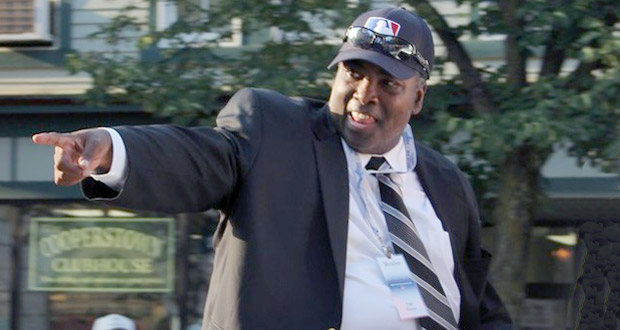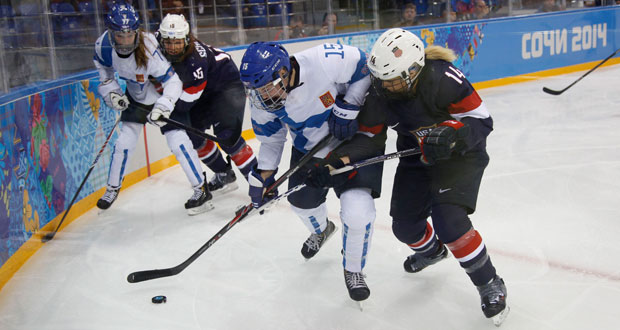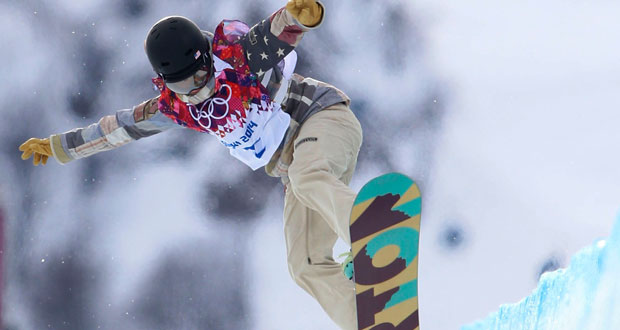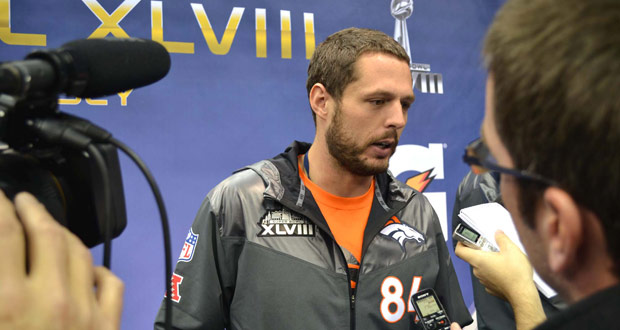Olympians for Christ: Several athletes find their true strength in the Lord
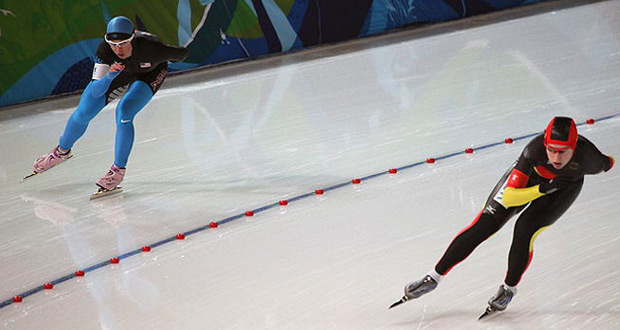
On Feb. 7 the Sochi Winter Olympics will kick off, complete with political intrigue, security concerns, and storylines about athletes going for Olympic glory but, even more so, God’s glory.
Speed skater Jilleanne Rookard says she came to faith in Christ while training for competition in 2006. Her faith is a source of strength and inspiration for the times when she feels like giving up: “I’ve just kept growing since then, and it’s not anything sudden. I realize now that I’m never going to stop learning.”
Bobsledder Brock Kreitzburg placed his faith in God at age 13, after losing his father to cancer. “God used the worst experience in my life—losing my father—to bring forth the best experience in my life—knowing my Heavenly Father. God is the Father I can never lose, who will be with me forever, and truly, unconditionally loves me,” Kreitzburg said. Kreitzburg, who earned a master’s of divinity from Gordon Conwell Theological Seminary in 2003, competed in the 2006 Turin Olympics but missed the 2010 Vancouver Olympics with an injury. He is hoping to make the final cut on the 2014 men’s Olympic bobsledding team.
Lolo Jones, a multisport athlete, will likely make the U.S. women’s bobsledding squad after winning a gold medal at the 2013 World Championships. Jones, 31, competed in the 100 meter hurdles at the 2008 Beijing and 2012 London Olympics, but gained more than 20 pounds to qualify for bobsledding competition. She made headlines in 2012 when she told HBO’s Real Sports with Bryant Gumbel that she is a virgin and plans on keeping her virginity until marriage.
“This journey has been hard,” she said at that time. “It’s the hardest thing I’ve ever done in my life. Harder than training for the Olympics. Harder than studying for college has been staying a virgin before marriage.” Jones often uses her Twitter account to share Bible passages and words of encouragement with her more than 370,000 followers.
Meanwhile, security concerns are growing in the wake of late-December suicide bombings in Volgograd, 400 miles from the Olympic facilities in Sochi. The second deadly terrorist attack of the month pushed the Russians to tighten security by creating a 60-mile “security zone” around Sochi. All spectators wishing to attend the Games must provide passports and contacts for security screening.
One of the militant groups fighting in the North Caucasus region likely carried out the attack. Doku Umarov, leader of the Caucasus Emirate (just one of the militant groups operating in Russia’s Northern Caucasus, the region between the Black and Caspian seas), says he will use “maximum force” to disrupt and terrorize the Sochi Games. His goal is an Islamic state in the Caucasus.
The U.S. National Security Council pledged “full support” to Vladimir Putin’s government in preparing security for the Games, according to the Reuters news service: “We would welcome the opportunity for closer cooperation for the safety of the athletes, spectators, and other participants.”
— by Zachary Abate

